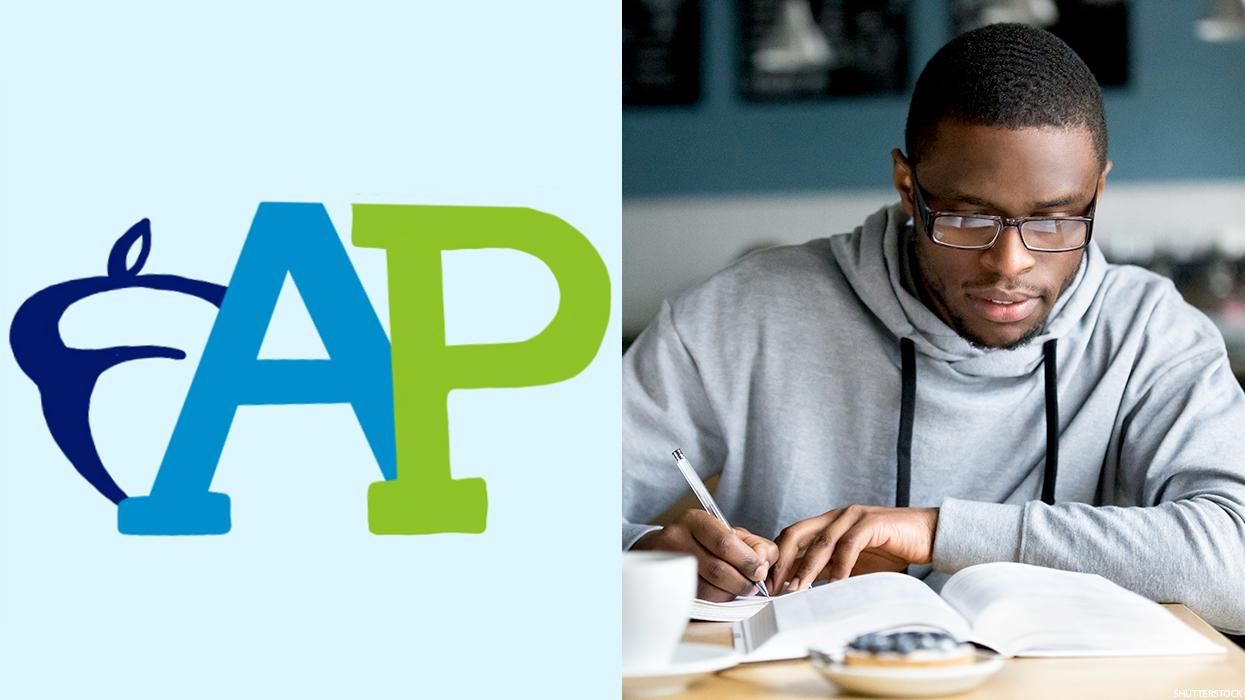The College Board has issued heated remarks against Florida Governor Ron DeSantis and the state Department of Education for their disparagement of a developing Advanced Placement African American Studies course.
Education has been a hot topic in the Sunshine State ever since DeSantis championed the Parental Rights in Education Bill, colloquially known as the "Don't Say Gay" bill, which bans the mention of gender and sexuality in classrooms. Instructors of ages K-3 risk losing their teaching licenses for violations of the law, which has been criticized for its vague language.
Recently, Florida administrations have began targeting discussions of race in classroom settings. Books have been completely removed in several school districts while they undergo a content review process, and a nationally taught AP African American History course was blocked from being taught in the state.
The FDOE rejected the AP course last month, with a spokesperson saying it “lacks educational value and is contrary to Florida law." They also accused the class of containing falsehoods, adding that they would reopen the discussion "if the course comes into compliance and incorporates historically accurate content."
The DeSantis administration recently also banned the teaching of Critical Race Theory in schools, and pushed to defund universities with diversity, equity, and inclusion programs. The Governor himself spoke out against the AP course, claiming it pushes a "political agenda."
The College Board released a rewritten framework for the course, with the FDOE celebrating the developments. However, a statement issued Saturday by the non-profit condemned the state's actions, with the organization saying they hoped to "clear the air and set the record straight."
College Board reiterated their support for the course, saying that "the dialogue surrounding AP African American Studies has moved from healthy debate to misinformation." They also stated that they never received feedback on the course from the FDOE, despite the state's claims otherwise.
"While it has been claimed that the College Board was in frequent dialogue with Florida about the content of AP African American Studies, this is a false and politically motivated charge," College Board wrote, continuing, "We had no negotiations about the content of this course with Florida or any other state, nor did we receive any requests, suggestions, or feedback."
College Board added that the course was rejected without explanation, despite their persistent requests for specific concerns in writing. After failing to provide reasoning to College Board, the FDOE rejected the course again, only they did so publicly in a move the non-profit deemed "a PR stunt which repeated the same rejection but now with inflated rhetoric and posturing, saying the class lacked 'educational value.'"
"Florida invited us to call them if we had any questions. We made those calls, as we would to any state that says they have unstated concerns about an AP course. These phone calls with FDOE were absent of substance, despite the audacious claims of influence FDOE is now making," they wrote. "In the discussion, they did not offer feedback but instead asked vague, uninformed questions like, “What does the word ‘intersectionality’ mean?” and “Does the course promote Black Panther thinking?”
The non-profit said that they were "naïve not to announce Florida’s rejection of the course when FDOE first notified us," particularly following Florida's expression of gratitude that certain topics were removed — all of which College Board says they were never asked to remove, and still remain in the curriculum.
"We have made the mistake of treating FDOE with the courtesy we always accord to an education agency, but they have instead exploited this courtesy for their political agenda," they wrote, adding, "In Florida’s effort to engineer a political win, they have claimed credit for the specific changes we made to the official framework."
College Board said that the new framework is a "significant improvement, rather than a watering down," and that topics such as “systemic marginalization” and “intersectionality” remain in the course, despite Florida's claims that they were removed because of the state's concerns.
"The notion that we needed Florida to enlighten us that these terms are politicized in several states is ridiculous," College Board said. "We took a hard look at these terms because they often are misunderstood, misrepresented, and co-opted as political weapons. ... Instead we focused throughout the framework on providing concrete examples of these important concepts. Florida is attempting to claim a political victory by taking credit retroactively for changes we ourselves made but that they never suggested."
Beyond the changes to the course, College Board said that the FDOE's limitations on Black History "continue to deride the field of African American Studies by describing key topics as 'historically fictional.'" They also apologized for their delay in responding to the falsehoods from the state.
"The College Board condemns this uninformed caricature of African American Studies and the harm it does to scholars and students," they wrote, adding, "We deeply regret not immediately denouncing the Florida Department of Education’s slander, magnified by the DeSantis administration’s subsequent comments, that African American Studies 'lacks educational value.' Our failure to raise our voice betrayed Black scholars everywhere and those who have long toiled to build this remarkable field."
- DeSantis Administration Blocks AP African American Studies Course From Florida High Schools ›
- DeSantis Claims Florida Rejected AP African American Studies For 'Political Agenda' ›
- Colleges Should Be Allowed to Consider Race in Admissions, Most Americans Say | AdvocateChannel.com ›
- College Board Won’t Alter AP Courses to Comply With Florida’s Laws ›
- Arkansas Joins Florida in Banning AP African American Studies ›



















































